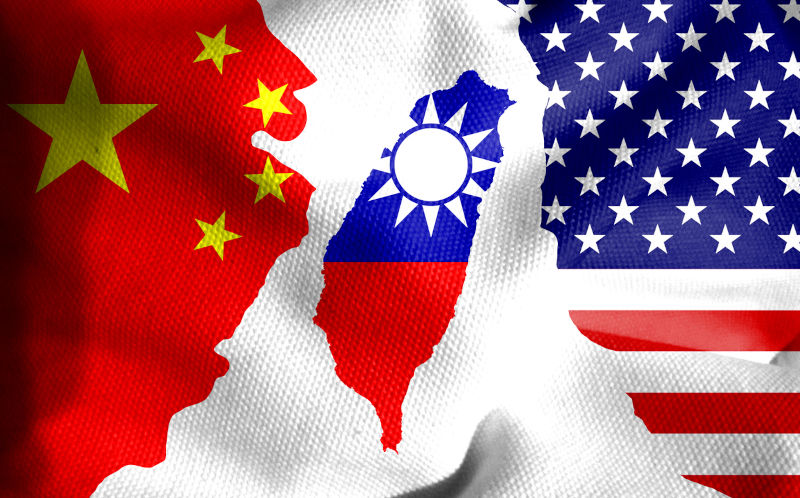For Australia, horror of war over Taiwan is not inevitable
March 8, 2023
Contributors to the War with China over Taiwan horror show which began in the Nine newspapers this week assume that a war between China and the United States is likely, and some of them then explicitly say that Australia would be involved. Australia should instead regard the Taiwan issue as one for us to sit out.
Mick Ryan, for example, says that we have made our choice. If the United States goes to war with China over Taiwan, we are going to support them one way or the other. Lavina Lee speaks of the outbreak of war and Australias inevitable participation.
They speak so glibly that one wonders whether they have thought at all about what a war between two nuclear powers, the biggest and second biggest economies in the world, would be like. Nor do they seem to have given any thought to what various government Ministers have said is Australias prime strategic goal in the Asia-Pacific, and that is to prevent war.
Why all this drama at this time? There are some events coming up which may have an influence; the releases of the Defence Strategic Review and the nuclear submarine study are two of them, and the coming budget is another. They will all involve spending very large sums of money on defence projects, and both the Defence organisation and firms which stand to benefit from Government spending may well welcome some preparing of the audience.
Our ally, the United States, may also have an interest. Under various defence arrangements we can expect to see an increasing amount of United States basing and military involvement in Australia. This has not been universally welcomed in the past, and the United States Government, and its defence firms which would be involved in an expansion of the US military presence in Australia as well as in an increase in our own defence spending, could well welcome the dramatisation of the China threat the Nine newspapers are providing this week.
How real is the China threat? Its certainly seen as real by some Americans, who see China as the peer competitor they cannot tolerate. According to some accounts China is already clearly ahead of the US in a number of key technologies, which gives added emphasis to the military in US eyes, since the US is clearly superior militarily; despite the recent planned increase of 7% in Chinese military spending the US increase is even bigger, at 8%. The urge to maintain their predominance in the Pacific, and elsewhere, is probably why some very senior American military commanders seem to be anticipating and even looking forward to a war with China before long, with Taiwan as its probable rationale.
Australian Ministers and senior officials, on the other hand, have frequently spoken of the need to find a balance in the Pacific which gives appropriate place and weight to both the United States and China. Conscious of what war between the two would involve, we should maintain that stance, and efforts to bring it about. Its true that feelings of tension seem to be increasing in Beijing, with Xi Jinping speaking only yesterday of Western countriesled by the United States—having implemented all-round containment, encirclement and suppression against us. But in bilateral terms our relationship with China is currently improving, with an end to the Chinese no-speaks, both countries making an effort, and progress on a number of the outstanding trade—or economic coercion—issues.
Despite those instances of economic coercion, it is almost impossible to imagine any realistic circumstances, short of general war in the Asia-Pacific, under which China would launch a military attack on Australia. Certainly, in the context of expanding its influence in the region, China is approaching some countries, in the South Pacific in particular, that we have become used to thinking of as ours, but that should act as a spur for us to pay them more attention rather than anything else. The basic fact is that China has become the major resident power in the Asia-Pacific region, is, and will remain, active in it, and we simply have to get used to that.
What about all the talk of war and the strategic danger from China? That really comes down to a fear that despite the talk of peaceful reunification, and recent political changes in Taiwan, China will at some stage use force to take Taiwan, and a belief that the US will use force to prevent that, and that we will join in on the United States side.
That belief that the United States would use force to defend Taiwan may or may not be correct: there are plenty of people in the United States, including very senior ones, who strongly believe it should, but one only has to read a fraction of current writing by US commentators to realise how divided the US polity currently is, so much so that its ability, let alone wish, to intervene effectively in such a situation cant be taken for granted. For example in a recent article in Foreign Affairs the President of the United States Council on Foreign Relations, Richard Haass, wrote that Further complicating the picture (of the world scene) is the reality that American democracy and political cohesion are at risk to a degree not seen since the middle of the 19th century A United States riven internally will become ever less willing and able to lead on the international stage.
And if China did make a move on Taiwan, and the US did respond militarily, what should we do? Many voices, including very senior ones like Peter Dutton, have said that it is hard to envisage us not joining with the US to defend democracy in a country with a population the size of ours. Certainly we are very used to joining with the United States in post-World War II military endeavours, and our degree of military enmeshment with the United States would make it embarrassing and possibly difficult to opt out. But other close US allies like Britain and Canada have been able to say well sit this one out in Vietnam, for example - without ruining their relationships with the US. And some of the ventures in which we joined the Americans Vietnam itself, Iraq, Afghanistan were certainly not successful ones.
Moreover, Taiwan is a very special case. We have no formal obligation to it. We recognised China, acknowledging that it maintained there is only one China, and that Taiwan is part of that. The current situation is complex and complicated: for example despite all the mutual abuse China and Taiwan have a substantial economic relationship; many people from Taiwan live and work in China. Recent polls show that a large proportion of Taiwanese believe that in the end Taiwan will be re-united with China, and are not keen to fight China to prevent that. The current state of affairs has come about as the result of the struggle for predominance in the Asia-Pacific between the US and China, the worlds two largest economies, both nuclear-armed and themselves in a complex and many-sided relationship.
We want the US to continue to play a major role in the Asia-Pacific, but there must be an appropriate place for China as well. As the former Secretary of DFAT, Peter Varghese, wrote in September last year: If we tether ourselves to the cause of US primacy we leave ourselves exposed to US policies that may make sense for the US but not necessarily for Australia. We risk structuring our defence forces to fight alongside the US rather than primarily for the defence of Australia. We risk buying into a narrative of democracy versus autocracy which, however inspiring, misreads the strategic and historical drivers of Chinas actions and has little resonance in our region.
Australia, with its small and presently ill-equipped armed forces, could contribute almost nothing to a clash between the United States and China that has nothing to do with us. The US is such a large and globally important country that its relationships can in the end be repaired even with countries with which it has been in conflict. That does not apply to us, and if we joined the US in fighting China over Taiwan, not only would we not make any appreciable difference but our relationship with our biggest trading partner would be destroyed for years.
We should regard the Taiwan issue as one for us to sit out.

